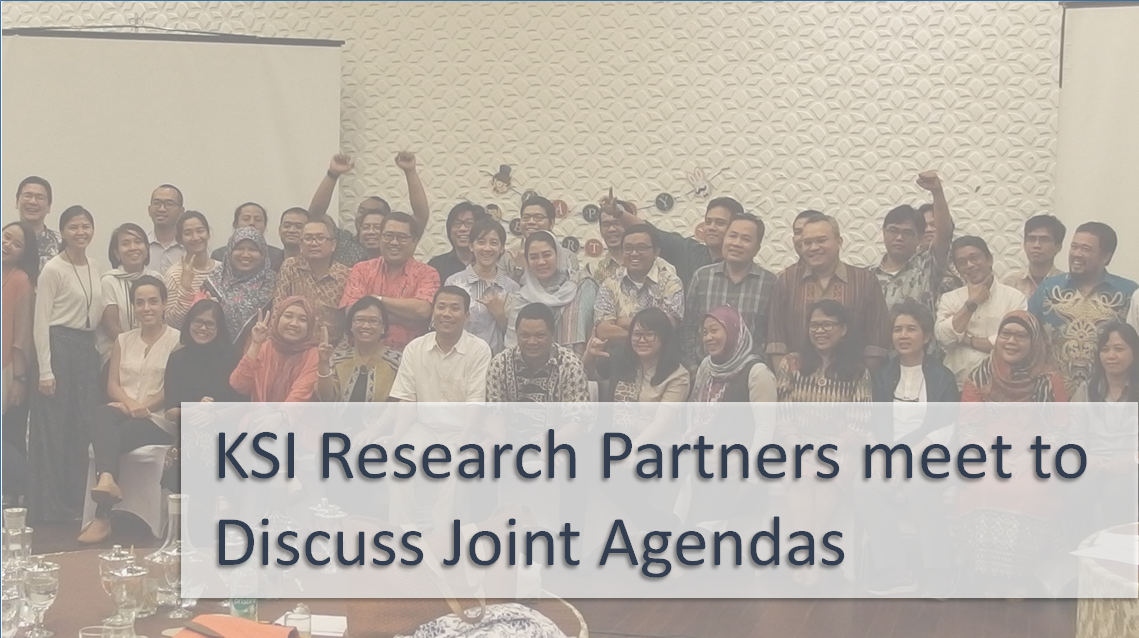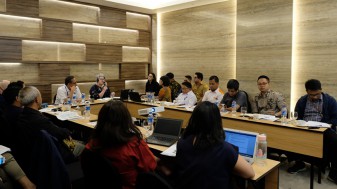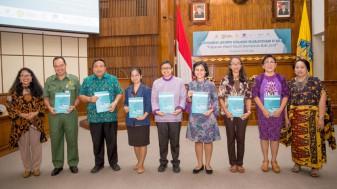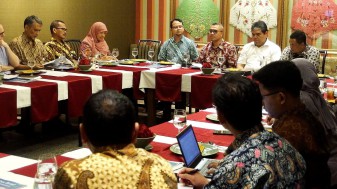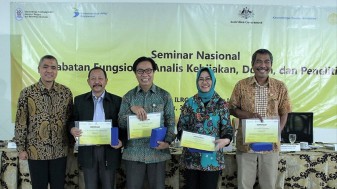KSI’s 16 policy research institutes (PRI) gathered in Bogor on 26-27 January to collaboratively analyse effective capacity development interventions as one of KSI’s major themes of work in Phase 1, and to discuss progress of their activities under the core grants towards the end of Phase 1 and the beginning of Phase 2.
The first day focused on collaborative analysis and verifying findings of a number of evaluation studies currently underway: (i) PRI Capacity Development Study led by Anna Wetterberg and Derick Brinkerhoff (RTI), (ii) the Rubric-based Organisational Review by the local research and support firm Solidaritas with a meta-analysis by Jessica Mackenzie (ODI); and (iii) Stories of Change by KSI staff member Lia Marpaung – which include an End of Intervention Report by KSI’s K2P-CD team and the Stakeholder Network Analysis study by KSI staff member Sugiyanto.
The second day focused on a general sharing session with PRIs discussing the progress of their projects under the core grants, KSI Phase 2 and its transition process, and updates on the Alliance for Research Excellence. Nicola Nixon from DFAT attended the PRI meeting, and together with KSI Team Leader Petra Karetji, presented the concept note for Phase 2 and the transition process towards it. The plan for the Indonesia Development Forum with Bappenas, to be conducted in July 2017, was also discussed, and received a positive response and support from PRIs.
The PRI meeting discussed progress in the development of the Alliance for Research Excellence (link) declared in Linggarjati in September 2016. PSHK who facilitates the birth and the growth of the presented an update of the consolidation process being done with the 16 PRIs. The discussion produced valuable feedback, including the need to agree on the role, function, strategy and type of alliance. Further discussion on the statute of the alliance, the strategy, standards, programs and goals will continue in the next alliance workshop that will be organised on 7-8 February 2017.

